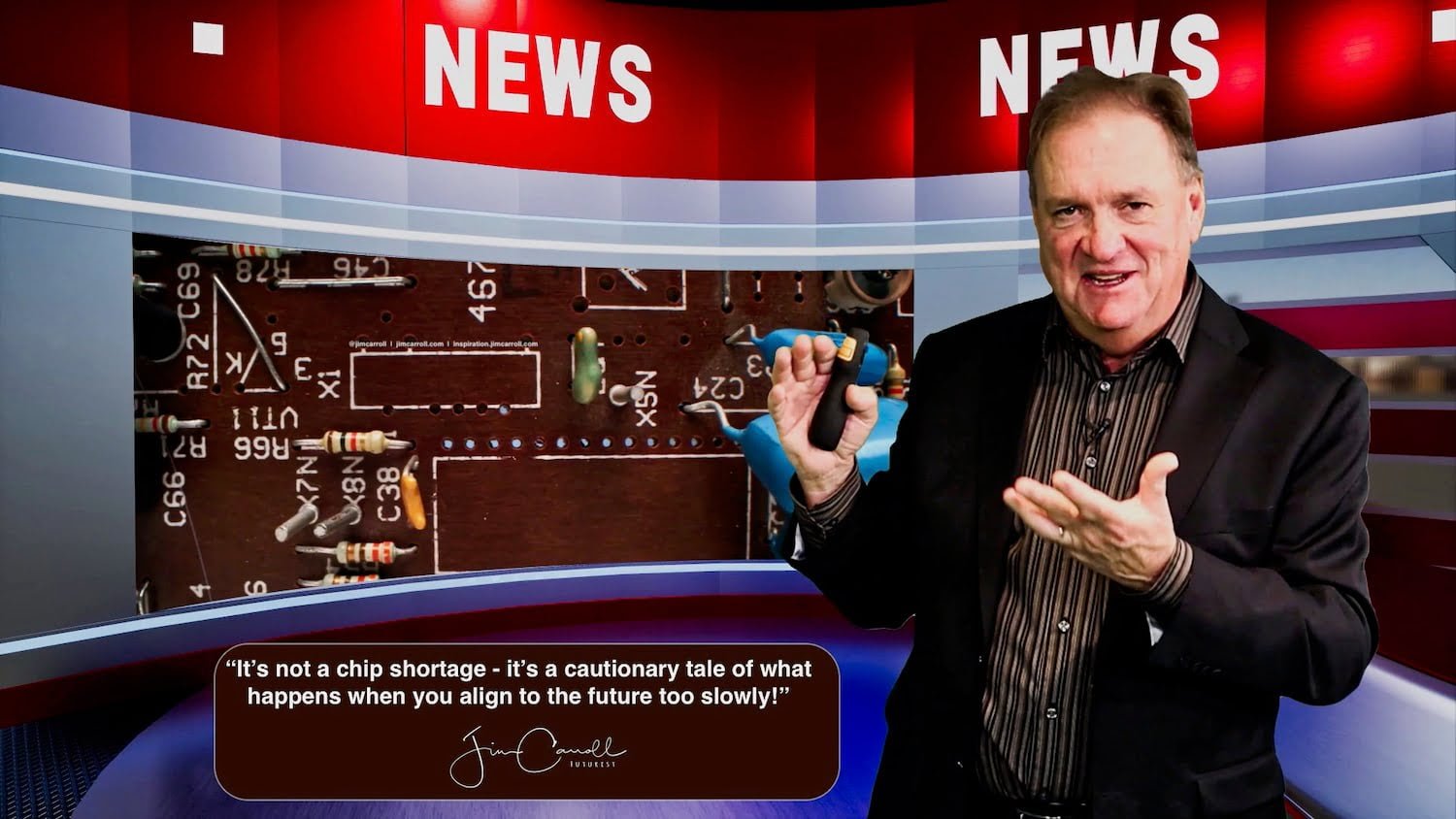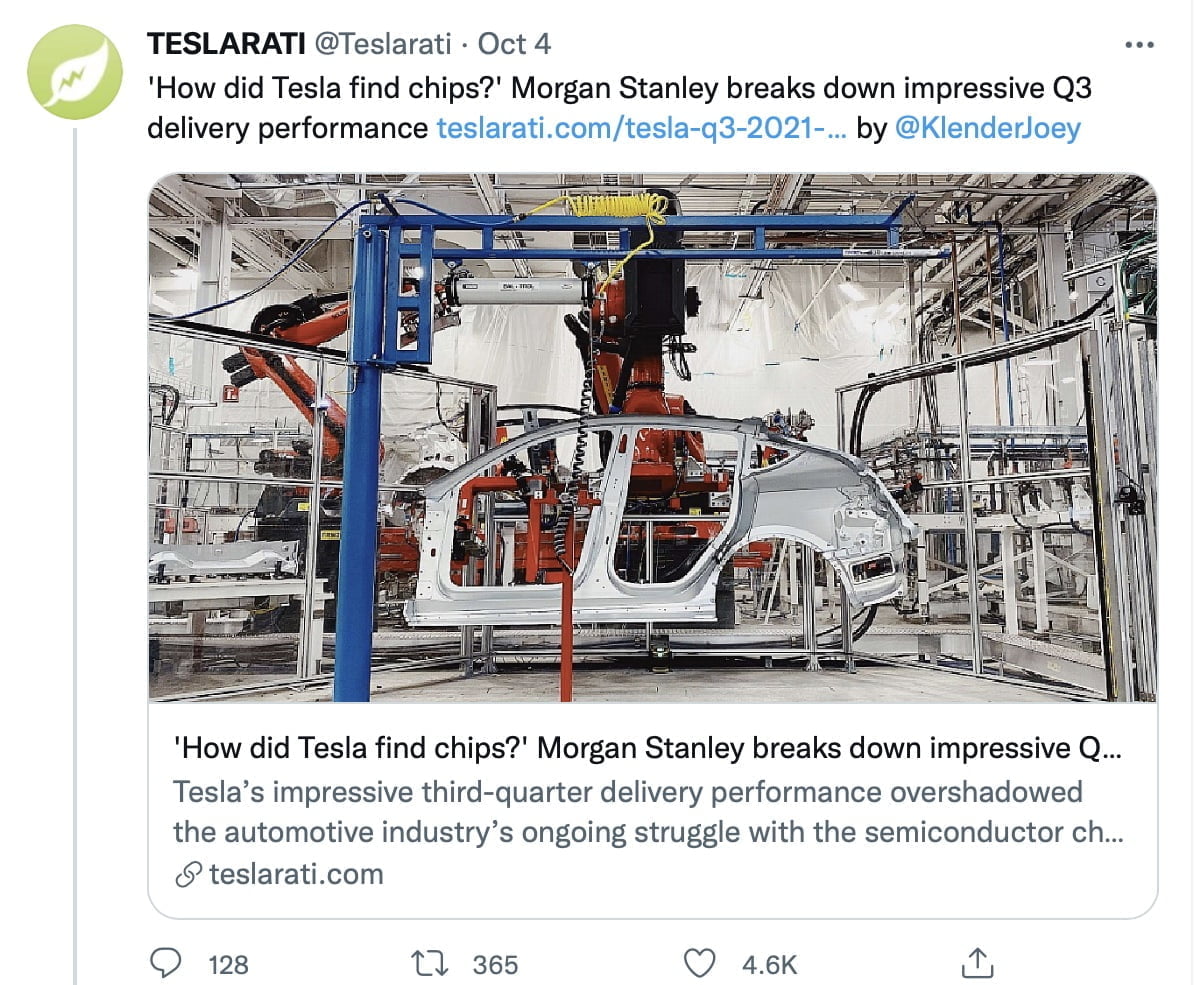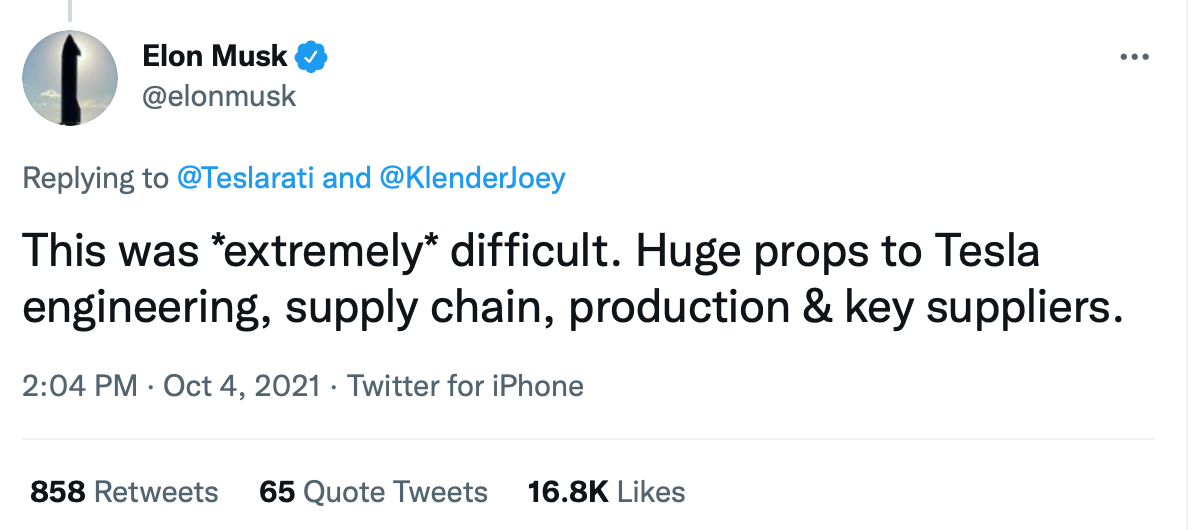“It’s not a chip shortage – it’s a cautionary tale of what happens when you align to the future too slowly!” – Futurist Jim Carroll

It’s the car companies’ own fault.
They were too slow to accept the reality that the future of the automotive industry doesn’t lay within the engine, but within the programming; they didn’t understand that connectivity is the new horsepower; they failed to appreciate that when everything becomes a technology story, the pace of change accelerates.
The upshot of this head-in-the-sand strategy is that they kept on doing what they’ve always been doing, building the cars and trucks of yesterday with the methodologies they used in the ‘before-times,’ refusing to accept that their industry was changing. Except, it did. Watch this!
The result is that they can’t buy the chips they need to build the olden-day cars they hope to bring to market tomorrow. I filmed a show yesterday in my virtual broadcast studio that examines the harsh reality of what lays behind the headlines. Some of the statistics and insight are staggering:
- automotive companies really don’t matter much to chip manufacturers; in many cases, they represent but 3 to 5% of the customer base – which is not a lot of weight to throw around when trying to accelerate orders!
- in fact, chip companies can make more money selling to a bigger market – gaming and console manufacturers and other similar industries
- some car companies are asking chip companies to build them chips of a 2004 vintage – used to control door locks, windows, and other minor components – and of course, many are balking at the request to ramp up production capacity for a 17-year-old design!
- the inability to get a single chip that costs 50 cents can hold back the production of an $80,000 car
- and so the spot market for particular chips has gone wild; one 5 cent chip has been seen on one site for $35 to $45 – and when you need it, you get it!
- the result is that Jaguar is delaying one model for a year; Opal is shutting down an entire plant till 2022; used car values are skyrocketing; dealers can’t get inventory.
I golf with a buddy who has an order in for a 2022 delivery of the new electric vehicle from Mercedes. I’d hate to tell him this, but is highly unlikely that he will get it when expected, because Mercedes, like most other car companies, is structured for an era of slow in a world that is fast. The reality of this story is that it’s not a chip shortage – it’s a planning and speed agility mismatch. Olden day car companies have architected supply chains, vehicle design, and strategy assumptions around the way they built cars yesterday, using the designs that were relevant in the past, and did not do what is necessary to align to a new future in which Silicon Valley controls the speed of innovation.
Here’s how you know they missed the boat – some of you will know I bought a Tesla Model 3 in August. Tesla has architected their car so that it receives a regular series of software updates to improve features, add capability, or align to the new infrastructure of the car. For months, I was wondering why I never received an update for the longest time from the purchase date. It turns out that my car was among several thousand that were using an entirely new set of chips that Tesla managed to source within the reality of the shortage – and so it was taking its time to reprogram the software for our vehicles to align to the new design.

Elon Musk responded:

Read the story. Behind the scenes, this is what Tesla had to say on a recent earnings call.
“Our team has demonstrated an unparalleled ability to react quickly and mitigate disruptions to manufacturing caused by semiconductor shortages. Our electrical and firmware engineering teams remain hard at work designing, developing and validating 19 new variants of controllers in response to ongoing semiconductor shortages.”
Go back and read the article: here’s the tweet leading to the Morgan Stanley report.
‘How did Tesla find chips?’ Morgan Stanley breaks down impressive Q3 delivery performance
The simple reality is this: car companies failed. And all around you, you’re witnessing similar failure in other industries. You are being told that there is a chip problem – and yet, semiconductor sales are up 29% this year over last year. Someone is getting them – the industries and companies that are aligned to the future!
Every industry is becoming a tech industry, and most companies are ill-prepared to react. The result is the ‘chip shortage’ headlines that are seeing, in which these failures are trying to blame chip companies for their own strategic witness.
These current events have a profound impact going forward – the winners and the losers will be defined by the ability to align to a new, faster speed. Remember my line? “The future belongs to those who are fast!” Yup! Watch the video I filmed in my virtual broadcast studio, using the automotive industry as an example of what happens when you don’t accept the reality of your future, and don’t align to the disruptive speed of change that is required.
EVERY industry is becoming a technology industry, and this might be you!




GET IN TOUCH
Jim's Facebook page
You'll find Jim's latest videos on Youtube
Mastodon. What's on Jim's mind? Check his feed!
LinkedIn - reach out to Jim for a professional connection!
Flickr! Get inspired! A massive archive of all of Jim's daily inspirational quotes!
Instagram - the home for Jim's motivational mind!